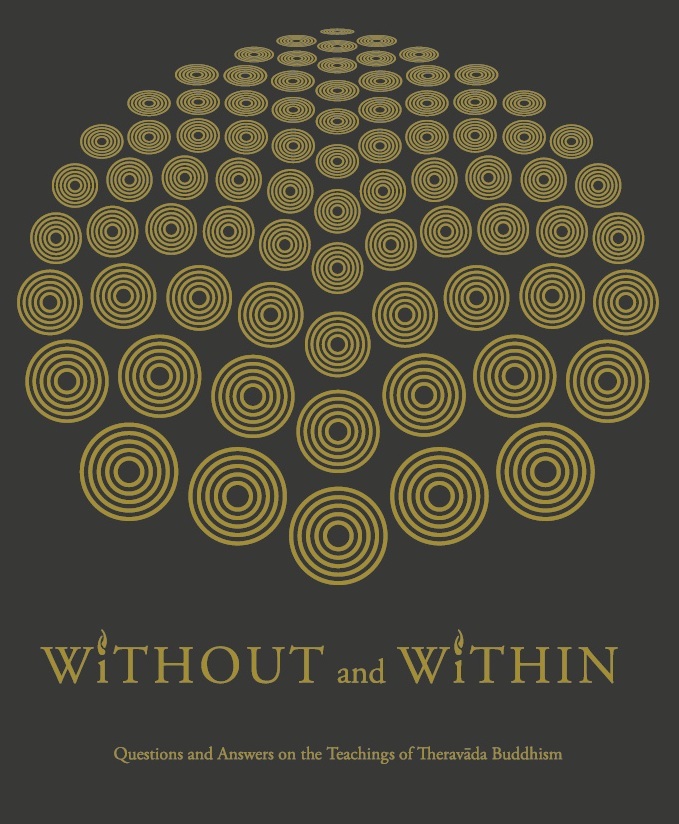The Buddha taught that all living beings are born with an instinctive wish
to avoid suffering and to experience happiness. The problem is that lacking wisdom,
we both continually act in ways that create the conditions for suffering,
and also neglect acting in ways that create the conditions for happiness.
We seek happiness in things that inevitably disappoint us;
we avoid things that would lead to our long-term welfare.
In short, we are our own worst enemy.
Few people have seriously considered the nature of happiness.
Of those who have, even fewer commit themselves to systematically
eradicating its inner obstacles and cultivating its supporting conditions.
It is not surprising that so few people are truly happy.
One of the basic premises of Buddhism is that the more clearly we see the nature of things,
the less we suffer, and the happier we become. Indeed, the Buddha referred to Nibbāna,
the goal of Buddhist practice, as ‘the supreme happiness’. Worldly happiness is fleeting and unreliable.
The happiness of a cultivated mind is a lasting refuge.
from without and within by Ajahn Jayasaro
https://th-th.facebook.com/jayasaro.panyaprateep.org
[Spoil] คลิกเพื่อดูข้อความที่ซ่อนไว้
หนังสือ "WITHOUT and WITHIN” เรียบเรียงโดยท่านพระอาจารย์ชยสาโร พระฝรั่งลูกศิษย์หลวงพ่อชา
หนังสือเล่มนี้เป็นลักษณะถาม-ตอบเรื่องราวเกี่ยวกับพุทธศาสนาฝ่ายเถรวาทจากมุมมองของพระสงฆ์ชาวอังกฤษซึ่งมาบวชในเมืองไทย
และได้รับอิทธิพลจากคำสอนของหลวงพ่อชาและท่านพระพรหมคุณาภรณ์ (ป.อ. ปยุตโต) โดยแบ่งออกเป็น 7 หมวด คือ
1. The Buddha (ข้อที่ 1-9)
2.Dhamma (ข้อที่ 10-44)
3. Sangha (ข้อที่ 45-61)
4. Buddhist attitudes (ข้อที่62-76)
5. Buddhism in Thailand (ข้อที่ 77-93)
6. The path of practice แบ่งออกเป็น
Dana (Giving) (ข้อที่ 94-96)
Sila (Morality)(ข้อที่ 97-102)
Bhavana (Mental cultivation) (ข้อที่ 103-120)
7. Buddhist resources (ข้อที่ 121-125)
สามารถดาวโหลดได้ฟรีที่
http://www.bia.or.th/en/index.php/31-latest-news/52-without-and-within-new-book-for-free-distribution
http://www.bia.or.th/fileupload/without_and_within.pdf





Why do so few people seem truly happy?
to avoid suffering and to experience happiness. The problem is that lacking wisdom,
we both continually act in ways that create the conditions for suffering,
and also neglect acting in ways that create the conditions for happiness.
We seek happiness in things that inevitably disappoint us;
we avoid things that would lead to our long-term welfare.
In short, we are our own worst enemy.
Few people have seriously considered the nature of happiness.
Of those who have, even fewer commit themselves to systematically
eradicating its inner obstacles and cultivating its supporting conditions.
It is not surprising that so few people are truly happy.
One of the basic premises of Buddhism is that the more clearly we see the nature of things,
the less we suffer, and the happier we become. Indeed, the Buddha referred to Nibbāna,
the goal of Buddhist practice, as ‘the supreme happiness’. Worldly happiness is fleeting and unreliable.
The happiness of a cultivated mind is a lasting refuge.
from without and within by Ajahn Jayasaro
https://th-th.facebook.com/jayasaro.panyaprateep.org
[Spoil] คลิกเพื่อดูข้อความที่ซ่อนไว้